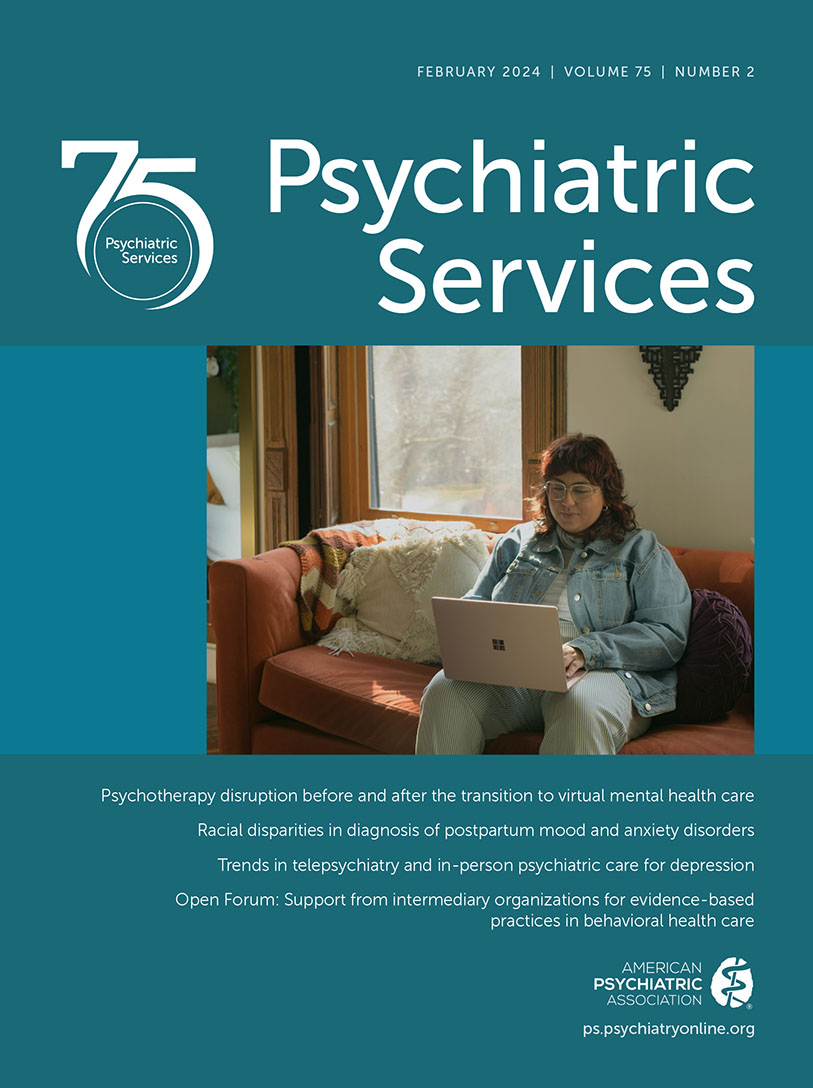Abstract
Objective:
Programs for early detection of psychosis help identify individuals experiencing emerging psychosis and link them with appropriate services, thereby reducing the duration of untreated psychosis (DUP). The authors used the cascade-of-care framework to identify various care stages between screening and enrollment in coordinated specialty care (CSC) and to determine attrition at each stage, with the goal of identifying points in the referral process that may affect DUP.
Methods:
Project partners included a college counseling center and CSC program. All college students seeking mental health services at a counseling center between 2020 and 2022 (N=1,945) completed the Prodromal Questionnaire–Brief (PQ-B) at intake. Students who met the distress cutoff score were referred for a phone screening. Those who met criteria on the basis of this screening were referred for assessment and possible enrollment into CSC.
Results:
Six stages in the cascade of care for early detection were identified. Of the students who completed the PQ-B as part of intake (stage 1), 547 (28%) met the PQ-B cutoff score (stage 2). Counselors referred 428 (78%) students who met the PQ-B cutoff score (stage 3), and 212 (50%) of these students completed the phone screening (stage 4). Seventy-two (34%) students completed a CSC eligibility assessment (stage 5), 21 (29%) of whom were enrolled in CSC (stage 6).
Conclusions:
The cascade-of-care framework helped conceptualize the flow within a program for early psychosis detection in order to identify stages that may contribute to lengthier DUP. Future research is warranted to better understand the factors that contribute to DUP at these stages.
Access content
To read the fulltext, please use one of the options below to sign in or purchase access.- Personal login
- Institutional Login
- Sign in via OpenAthens
- Register for access
-
Please login/register if you wish to pair your device and check access availability.
Not a subscriber?
PsychiatryOnline subscription options offer access to the DSM-5 library, books, journals, CME, and patient resources. This all-in-one virtual library provides psychiatrists and mental health professionals with key resources for diagnosis, treatment, research, and professional development.
Need more help? PsychiatryOnline Customer Service may be reached by emailing [email protected] or by calling 800-368-5777 (in the U.S.) or 703-907-7322 (outside the U.S.).



